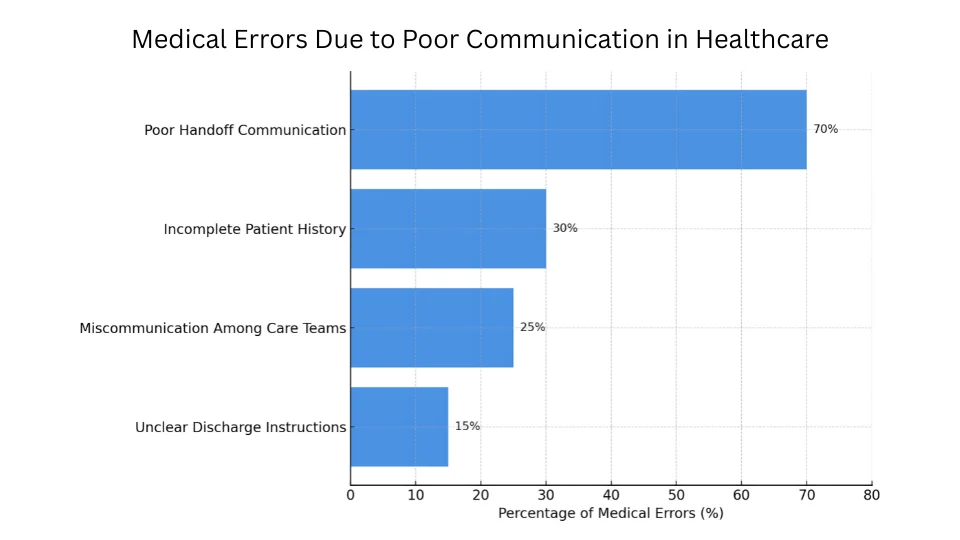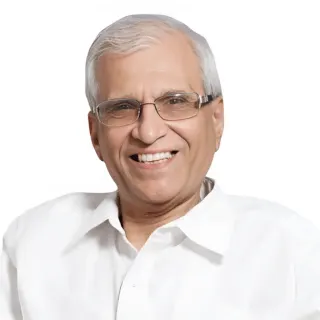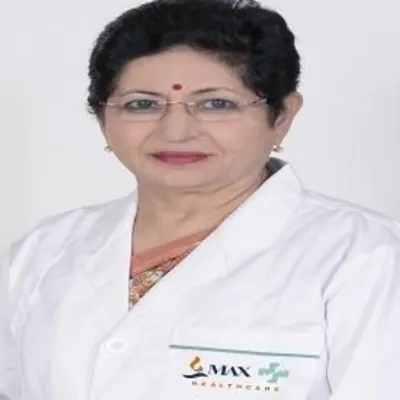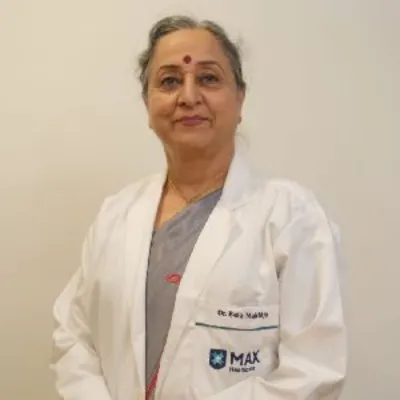Best Cosmetic & Plastic Surgeons in Indraprastha Apollo Hospital Delhi
 29 January,2026
Read More
29 January,2026
Read More
Enquire now in case of any assistance needed
 01 May,2025
01 May,2025

The prospect of undergoing a medical procedure, irrespective of its complexity—from routine examinations to intricate surgeries—can understandably cause apprehension. Consequently, transparent patient-doctor communication with one's healthcare providers is crucial; it ensures safety, fosters trust, and facilitates better health outcomes.
Engaging in professional and clear dialogue with your healthcare providers ensures that you understand every aspect of the diagnosis, the available treatments, and their various pros and cons. Patient-doctor communication helps you understand your diagnosis, along with possible treatment options. You are empowered to make informed decisions regarding your healthcare. You are indeed in control, and that builds trust between you and your healthcare providers. It fosters comfort, dignity, and respect.
Regardless of their level within the healthcare system, when patients are listened to and their input is sought, they are more motivated to adhere to the treatment provided, which improves health outcomes. Read on to discover how effective patient-doctor communication with your medical team is crucial at every stage of your healthcare journey.
Fill up the form and get assured assitance within 24 hrs!
Most importantly, healthcare employees also require effective internal communication. The timely and proper sharing of information among doctors, nurses, and other healthcare professionals minimizes the potential risk of medical errors and ensures continued treatment.
Collaborating in this way improves patient safety and outcomes for necessary and sufficient healthcare services. This underscores the importance of care coordination in achieving successful outcomes.
Interaction between professionals in multidisciplinary teams and the patient is essential to prevent medical errors and treatment mistakes.

Here is your horizontal bar chart titled "Medical Errors Due to Poor Communication in Healthcare", showing a visual breakdown of preventable errors.
Taking into consideration that proper listening enhances patient care and patient participation.
Feeling heard and receiving responses enhances a patient’s health and satisfaction. Patients find it far more fulfilling when they are listened to.
It is very normal to feel anxious prior to a treatment or surgery, but knowing that you can communicate with your team can help alleviate the sensation of anxiety. Here are ways to take part in the process before your procedure:
This is the most crucial step to understand what comes with your procedure. Do not forget to ask about:
Before any form of diagnosis or treatment, your doctor will take a thorough medical history. You need to communicate openly and honestly about your past illnesses, treatment, and any medications that you are on.
Even if you are unable to observe what is happening, your anesthesiologist will have measures in place to monitor you throughout the procedure.
There is very substantial patient-doctor communication taking place among the surgical team, ensuring that every necessary step is discussed to maximize the efficiency and effectiveness of your procedure.
Every member of the surgical team, including surgeons, anesthesiologists, nurses, and aides, is scheduled to fulfill a critical role. They depend on organised ways of sharing vital information through structured communication.
SBAR is widely used among practitioners" x="">widely used among practitioners, which breaks down into
During extensive procedures, real-time updates can be provided to family members, keeping them engaged.
Post-surgery isn't solely about the physical aspects of recovery. It is also the smooth and safe recovery that demands active engagement and a clear delineation of the steps to be taken by the healthcare team.
Your healthcare provider will meet with you before your discharge to outline the provided instructions specific to the procedure carried out, which will include:
Effective communication with your healthcare team is essential for receiving the best possible care. Here are some practical tips to help you navigate medical appointments and ensure your concerns are addressed:
It's essential to provide your doctor with complete and accurate information about your health, even if some details seem minor or uncomfortable to discuss. This includes symptoms, lifestyle habits, and any over-the-counter medications or supplements you're taking.
Being open helps your healthcare provider make informed decisions about your treatment plan.
Medical appointments can be overwhelming, and it's easy to forget details. Bringing a notebook or using a notes app on your phone to jot down key points during the visit can be helpful.
This ensures you remember essential instructions, such as taking medications, making lifestyle changes, or following up on appointments.
Having a trusted friend or family member accompany you to your appointment can provide emotional support and help you remember information discussed.
They can take notes, ask questions you might not think of, and help you understand complex medical information.
After your initial visit, it's crucial to follow through with any recommended tests, treatments, or specialist referrals. Attending follow-up appointments allows your healthcare provider to monitor your progress and make necessary adjustments to your care plan.
Clear communication with your medical team isn't just helpful—it's essential. From the initial consultation to post-procedure recovery, open dialogue ensures that everyone involved understands the care plan, which reduces the risk of errors and enhances patient safety.
Before the procedure, discussing your medical history, asking questions, and expressing concerns helps customise the treatment to your needs. During the procedure, healthcare professionals rely on structured care coordination methods, such as SBAR (Situation, Background, Assessment, Recommendation), to coordinate effectively. Afterwards, understanding discharge instructions and knowing when to seek help are crucial for a smooth recovery.
Remember, you're an active participant in your healthcare journey. Don't hesitate to speak up, ask questions, and stay engaged. Your voice matters, and clear patient-doctor communication is the key to achieving the best possible outcomes.
A good medical tourism partner can make the entire care journey feel a lot less overwhelming. From helping you choose the right hospital and doctor to arranging travel and accommodation, they’re there to guide you through each step with care and clarity. More than just logistics, they support patient-doctor communication by making sure nothing gets lost in translation and every concern is understood.
Their role in care coordination and patient-doctor communication is key. They bring together the right people, plans, and timing so that everything runs smoothly. With someone experienced by your side, the focus stays where it should be: on healing, comfort, and feeling supported every step of the way.
Fill up the form and get assured assitance within 24 hrs!
B.Sc in Media Science from NSHM Knowledge Campus, Kolkata, 2019-2022
Suryani Dutta is an experienced content writer, specializing in healthcare and medical tourism. With a B.Sc. in Media Science from NSHM Knowledge Campus, Kolkata, she creates engaging, accurate, and SEO-friendly content that empowers patients to make info
Dr. Shashidhar TB is an experienced ENT and head and neck surgeon with over 20 years of experience. He specializes in pediatric ENT and has successfully performed numerous surgeries on infants, even in cases where others have failed....
Senior Consultant
Medical Oncologist
Nanavati Super Specialty Hospital, Mumbai
WhatsApp UsSenior Director
Gynecologist and Obstetrician, IVF Specialist
Max Super Speciality Hospital, Shalimar Bagh, New Delhi
WhatsApp UsSenior Director
Gynecologist and Obstetrician, IVF Specialist
Max Smart Super Speciality Hospital, Saket, New Delhi
WhatsApp UsSenior Director
Gynecologist and Obstetrician
Max Smart Super Speciality Hospital, Saket, New Delhi
WhatsApp UsSenior Director
Gynecologist and Obstetrician
Max Smart Super Speciality Hospital, Saket, New Delhi
WhatsApp UsSenior Director
Gynecologist and Obstetrician
Max Smart Super Speciality Hospital, Saket, New Delhi
WhatsApp UsThe Art of Effective Communication
 27 January,2026
Read More
27 January,2026
Read More
 20 January,2026
Read More
20 January,2026
Read More
 16 January,2026
Read More
16 January,2026
Read More
 13 January,2026
Read More
13 January,2026
Read More
 09 January,2026
Read More
09 January,2026
Read More
Trusted by Patients
"I am Asim from Bangladesh and was looking for treatment in India for neuro. I visited many websites to get the complete information regarding the treatment but I was not satisfied as I was getting confused. In the meanwhile, one of my friends suggested I seek help from Medi Journey as he experienced his medical journey very smoothly and was satisfied with it. They have filtered the top 10 doctors as per experience, the success rate of surgery & profile, so it helps us to choose the best treatment in India. "
"For my knee surgery, Medi Journey guided me to BLK Hospital where I received exceptional care. The team's support and the expertise at BLK Hospital exceeded my expectations. Thank you Medi Journey for making my medical journey stress-free. "
"I came from Iraq for my granddaughter's eye surgery in India facilitated by Medi Journey, due to critical cases they advised us to get a second opinion from the different hospitals before going to surgery. Finally, we went to Fortis Escort Hospital, which helped us to get more confidence for diagnosis. Fortis Escort Hospital has the best eye surgeon team with the latest instruments. Thanks to all team members for providing a high-quality treatment in India at an affordable cost. "
"I came for my hair transplant in India, before coming I was so confused about choosing the best clinic and surgeon for me. But thanks to God one of my friends had a hair transplant in India through Medi Journey. He recommended me to go with them. I am completely happy with my experience with them. They were always very fast in their responses to me. the success rate of my hair transplant surgery is 100%."
"Artemis Hospital, suggested by Medi Journey, turned out to be a great choice for my treatment. The personalized assistance and medical care were exceptional. I'm grateful to Medi Journey for guiding me to a hospital that perfectly matched my needs. Highly recommended! "
"I came from Afghanistan for my treatment in India at Jaypee Hospital, Noida. I had a fantastic experience with Medi Journey. Kudos to them for their incredible support during my medical journey. They not only took care of all the logistics but also connected me with a fantastic healthcare team. Efficient, caring, and highly recommended for a hassle-free medical tourism experience."
"I am Adam from Kano, Nigeria, one of my friends from Nigeria was facilitated by Medi Journey, and he recommended us to go with them. I sent my all reports to them and within 48 hours they reverted with 4 options from different hospitals. They helped me to get a Visa letter from the hospital, arrange pick-up from the airport, and book a hotel for me. Their team is very honest and throughout our stay in India they are with us they are caring for us like his family members. BLK Hospital is the best hospital in India with a top surgical oncologist surgeon team, a very advanced OT, and a Radiotherapy department. I wish more success to Medi Journey. "
"Great experience at the Max Hospital for my spine surgery and was successfully done. I thank my neurosurgeon and his entire team. I recommended all of my country's people to Medi Journey for treatment in India, they choose the best hospital, the best doctors, and the best cost for patients."
"I came to India from Dhaka, Bangladesh for my father-in-law's cardiac surgery at Fortis Hospital. I was confused about choosing the best surgeon for him before coming, but their team helped me to choose the best hospital and best cardiac surgeon in India with very good cost and 100% success rate of surgery. I am very happy with the services, really they make my journey so comfortable that make me feel at home. Thanks again and I like people to choose "Medi Journey" as your travel guide. "
"I am Mohammad from Bangladesh came to India for my general health checkup. Medi Journey offers me the complete package including Pick-up from the airport, hotel services, and 24-hour assistance. They guide you to choose the best hospital in India, the best cost of treatment with top-most doctors and give you complete information about hotel booking, and pick-up from the airport before coming to India They have the best team to help. Always choose Medi Journey for your treatment in India."





